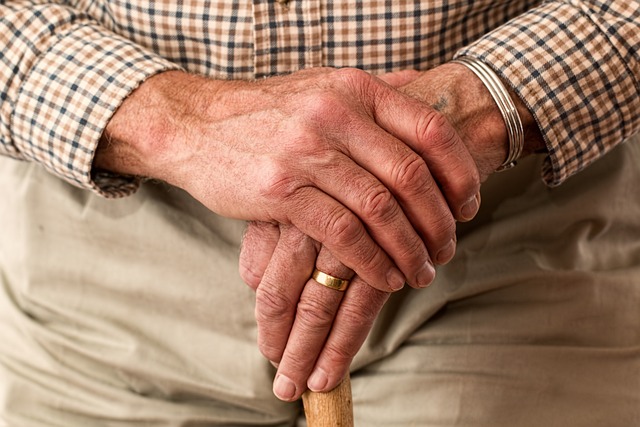Elderly Companion Services provide crucial support for seniors seeking to maintain independence in their homes. They offer tailored care ranging from basic companionship to intensive assistance with daily living and post-hospitalization needs. By ensuring safety, supervision, and personalized attention, these services alleviate loneliness, promote secure aging, and facilitate enhanced quality of life. When selecting in-home care, choosing the right caregiver is essential; Elderly Companion Services can help by screening caregivers based on medical skills and compassionate personality traits to match unique senior needs and foster a nurturing home environment.
Caring for elderly loved ones at home is a noble endeavor, offering both companionship and support. This article guides you through the essential aspects of in-home care, focusing on Elderly Companion Services. From understanding the benefits and exploring various types of assistance to creating a safe and comforting environment at home and selecting the ideal caregiver, these insights ensure your loved one receives the best possible care. Discover how Elderly Companion Services can enhance their quality of life.
- Understanding Elderly Companion Services: Benefits and Types
- Creating a Supportive Environment at Home for Elderly Care
- Choosing the Right In-Home Caregiver: Tips and Considerations
Understanding Elderly Companion Services: Benefits and Types

Elderly Companion Services provide a valuable support system for older adults who wish to maintain their independence in the comfort of their homes. These services offer companionship, assistance with daily tasks, and monitoring, ensuring elderly folks receive the care they need while keeping their routines. The benefits are numerous; it can help reduce feelings of loneliness, promote safety by providing supervision, and assist with mobility issues, allowing them to age gracefully in familiar surroundings.
There are various types available, tailored to different needs. Some services offer simple companionship, engaging in conversations, playing games, or assisting with light housework. More comprehensive care includes personal assistance with activities of daily living (ADLs), such as bathing, dressing, and meal preparation. Additionally, many companion services provide transportation, errand running, and even specialized care for those with chronic conditions or post-hospitalization recovery needs.
Creating a Supportive Environment at Home for Elderly Care

Creating a supportive environment at home is paramount when providing in-home care for elderly loved ones. This involves adapting the living space to cater to their unique needs and ensuring it’s safe, comfortable, and familiar. Services like Elderly Companion Services play a crucial role here by assisting with daily tasks such as cooking, cleaning, and transportation, allowing for a more relaxed and secure atmosphere. A well-arranged home can significantly enhance their quality of life, encouraging independence while providing the necessary support.
Designing this space means considering mobility issues, incorporating non-slip floors, installing handrails in bathrooms, and ensuring easy access to frequently used items. Creating dedicated areas for rest, social interaction, and leisure activities fosters a sense of belonging and comfort. Additionally, keeping emergency contact numbers readily available and implementing simple safety measures like smoke detectors and carbon monoxide alarms contribute to a peaceful and secure environment where the elderly can thrive.
Choosing the Right In-Home Caregiver: Tips and Considerations

When considering in-home care for elderly loved ones, selecting the right caregiver is paramount. It’s important to note that beyond medical expertise, an ideal caregiver should possess compassion, patience, and a genuine desire to assist. Elderly Companion Services can be a valuable resource here, as they often screen and vet potential caregivers, ensuring they meet specific criteria for competence and care.
Consider the needs of your loved one: medical, emotional, and social. Assess their daily living activities and choose a caregiver with experience in handling similar requirements. Verifying references, checking background checks, and observing interactions between the potential caregiver and your relative can provide insights into their compatibility. Remember that the best fit is often someone who becomes an extension of the family, fostering a nurturing and supportive environment within the home.
Providing quality care for elderly loved ones at home is not just about ensuring their physical needs are met; it’s also about enhancing their overall well-being, independence, and happiness. By understanding the benefits and types of elderly companion services, creating a supportive home environment, and carefully choosing caregivers, you can create a loving and comfortable setting that fosters a sense of security and companionship. Elderly Companion Services play a vital role in navigating this phase, offering peace of mind for families and enriching lives for the seniors.
